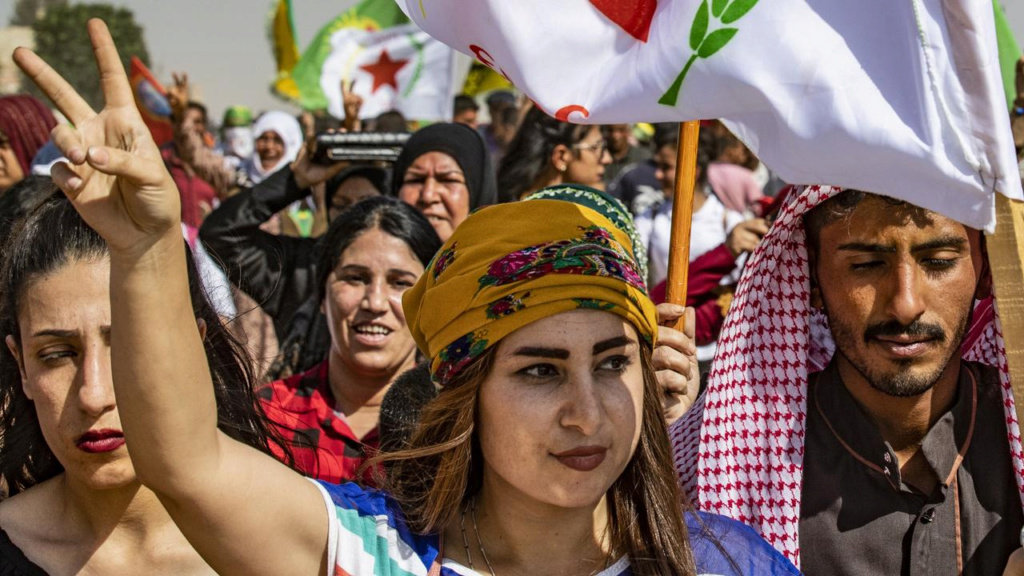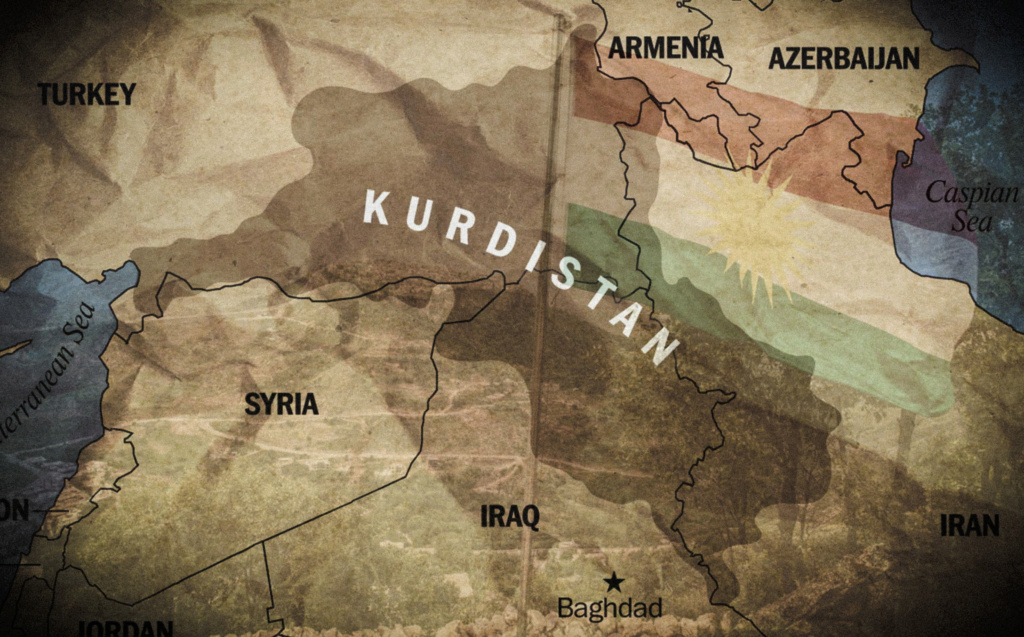The Kurds… friends of the mountains, the dispersed, and the dream of a state aborted by the curse of history and geography

“The Kurds have no friend but the mountains”...so says a Kurdish proverb, after history disavowed them and geography failed them to which they gave their lives...
Since the Kurds were found, they have not been comfortable. They have always been on the scene of major conflicts due to the geostrategic position of “Kurdistan”, starting with the Greco-Persian wars, passing through the Seljuk-Byzantine wars, and ending with the Ottoman-Safavid conflict...
And after they thought that they would finally enjoy contentment, the Sykes-Picot Treaty failed them, so they chased after that the dream of establishing their state, and since then... they reap nothing but mirages !
So what is the story of the “Kurds” then? That's what we single out this file for.
He was expelled, deported, expelled and displaced. The card is one of the names of the sword because it keeps the head away from the body. As for the Kurds, they are deported from their land for political, social or religious reasons.

This is how the researcher Muhammad Bahjat Qubaisi tries to explain the origin of the word “Kurds”, reinforcing his opinion with “Lisan al-Arab”, where: their Kurds make them Kurds; That is, leg them, kick them out and push them.
While Qubeisi confirms that Kurdish also means brave, brave and jealous, the researcher Hanan Akhmis goes to the fact that the origin of the word is Persian, where Kurd means hero or brave, and the wolf as well.
As for the word “Kurdistan”, it is a compilation of two syllables. “Kurd” referring to the Kurds, and “stan” meaning land, country or homeland.
This “Kurdistan” is a term by which the Kurds refer to a large geographical area that extends to the right and to the left, to the north and to the south… in several countries!
While the researcher Kulshan Saghlam believes that it was used for the first time by the Assyrians in ancient times, the researcher Khaled Aklan attributes its appearance to the 12th century AD.

It appeared, according to him, as an administrative geographical term with national and demographic significance during the reign of Sultan Sinjar, the Seljuk.
That was when the sultan separated this, the western part from the region of the mountains, and made it a state under the rule of his relative, Suleiman Shah, and called it “Kurdistan.” The name “Kurdistan” was being used in official Ottoman documents and correspondence.
The founder of the Republic of Turkey himself, Mustafa Kemal Atatürk, while serving in the Kurdish regions, used to indicate that he was in Kurdistan.
“Mysterious” roots subject to falsification…
Many historians trace the roots of the Kurds back to the Aryan race. For them, the Kurds are the descendants of peoples who inhabited the Zagros and Taurus mountains, and the adjacent areas, since 3 thousand years BC.
In his book “A Summary of the History of the Kurds and Kurdistan,” the Kurdish historian Muhammad Amin Zaki argues that the origins of the Kurds were formed from two classes; The first inhabited those mountains from the beginning, and the second Indo-European peoples, such as the Medes and the Cardochians, came later and settled in the region.

The merging of these peoples with each other, says Muhammad Amin Zaki, formed for us those who are known today as “the Kurds.”
By the way, researcher Bahjat Qubeisi points out that Amin Zaki's book contains many historical inaccuracies, because, in addition to being the first to write about the Kurds, he fanatically wrote about his compatriots and the rest took him without investigation or scrutiny.
Whatever it was, the ancient origins of the Kurds are fixed, and they are among the oldest peoples in the region, neither outsiders in its history nor newcomers in its geography.
This is because Greek historians mentioned them, especially during the Greco-Persian wars. The Greek historian Xenophon, for example, refers to a people he described as strong warriors who lived in the mountains, and he called them "Kardoch".
Al-Masoudi in his book “Promoters of Gold” also mentions these people, although, according to researcher Salah Barwari [5] , he carries several historical inaccuracies, such as that the origin of the Kurds is Arab.

Then, the researcher Kulshan Saghlam confirms that the ancient history of the Kurds raises a lot of ambiguity, because they were not known throughout history as a people with specific characteristics, until after they converted to Islam.
A “homeland” dispersed between four countries…
Today, the Kurds are among the largest nationalities for which there is no politically independent state.
After the signing of the Sykes-Picot Treaty between France and England in 1916 AD, the Ottoman Empire was divided, and the countries acquired what they had, and the Kurds were deprived of an independent state and were distributed among four countries: Turkey, Iran, Iraq and Syria.
We will come to detail this in a later part, but by the way, there are also Kurdish minorities living in other regions such as Armenia, Azerbaijan and Lebanon.
As for if we talk about the number of Kurds in the world, the sources differ in that; Some of them say that they range between 25 and 35 million... However, it is likely that they amount to 38 million people.
Today, the Kurds represent about 20 percent of the population of Turkey, less than 10 percent of the population of Iran, between 15 and 20 percent of the population of Iraq, and 15 percent of the population of Syria.
Compared to the population of the countries of the Middle East, the Kulshan Shuglam Kurds are a minority... but a large minority.
Islam is the religion of the Kurdish majority. Most of these are Sunnis who follow the Shafi'i school of thought. Like other peoples, some of them profess Christianity and Judaism. Some of them embrace other religions, such as Yazidis and Yarisanis .
Written by: Karim Al-Hani
Source: websites

